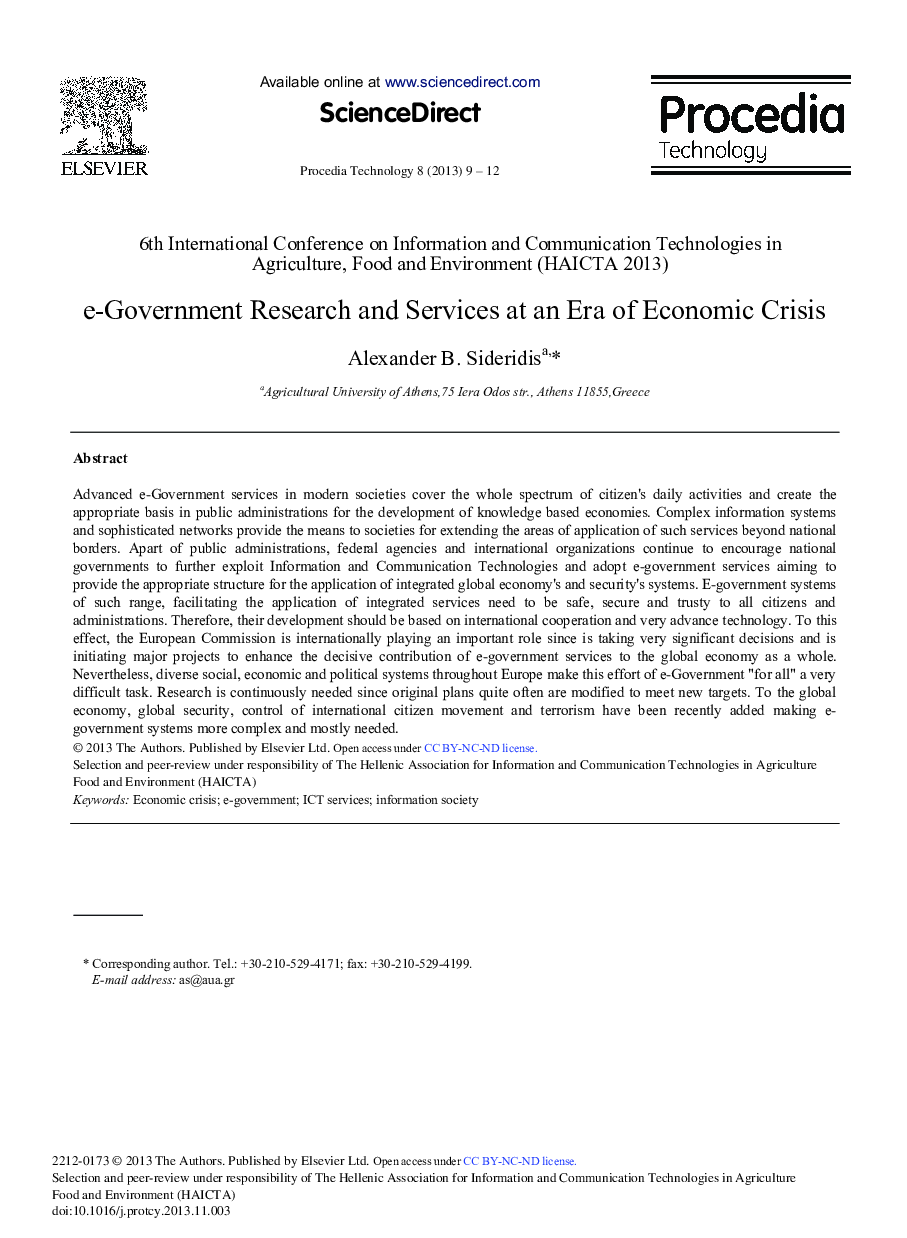| Article ID | Journal | Published Year | Pages | File Type |
|---|---|---|---|---|
| 493073 | Procedia Technology | 2013 | 4 Pages |
Advanced e-Government services in modern societies cover the whole spectrum of citizen's daily activities and create the appropriate basis in public administrations for the development of knowledge based economies. Complex information systems and sophisticated networks provide the means to societies for extending the areas of application of such services beyond national borders. Apart of public administrations, federal agencies and international organizations continue to encourage national governments to further exploit Information and Communication Technologies and adopt e-government services aiming to provide the appropriate structure for the application of integrated global economy's and security's systems. E-government systems of such range, facilitating the application of integrated services need to be safe, secure and trusty to all citizens and administrations. Therefore, their development should be based on international cooperation and very advance technology. To this effect, the European Commission is internationally playing an important role since is taking very significant decisions and is initiating major projects to enhance the decisive contribution of e-government services to the global economy as a whole. Nevertheless, diverse social, economic and political systems throughout Europe make this effort of e-Government “for all” a very difficult task. Research is continuously needed since original plans quite often are modified to meet new targets. To the global economy, global security, control of international citizen movement and terrorism have been recently added making e- government systems more complex and mostly needed.
